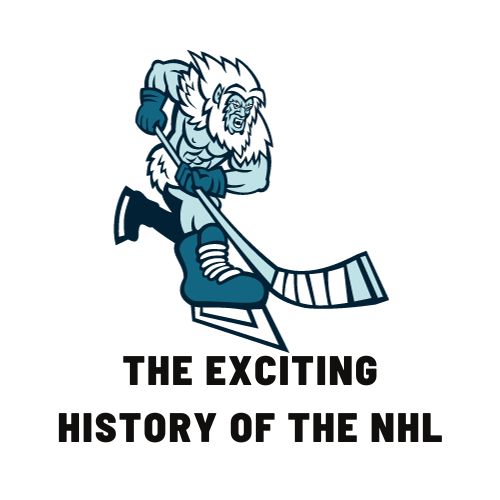The National Hockey League (NHL), widely recognized as the world’s premier men’s professional ice hockey league, has a rich and fairly tumultuous history, filled with conflict, mergers and lockouts.
Here, we’ll examine the highlights of the history of the NHL and what made it into the hockey giant it is today.
A Difficult Birth
Ice hockey’s counterpart to the American football’s NFL or baseball’s Major League Baseball (MLB) leagues, the NHL formed primarily because the other owners of Canada’s professional hockey teams had grown tired of the attitude of Eddie Livingstone, owner of the Toronto Blueshirts.
Out of patience with Livingstone and his confrontational attitude, in 1917, the other team owners of the then-National Hockey Association (NHA) decided to form a league of their own that, in the words of George Kennedy, owner of the Montreal Canadiens, was “like our old league, except that we haven’t invited Eddie Livingstone to be part of it.”
America Joins the NHL
With a start of only five teams, the fledgling NHL needed new blood, so the primarily Canadian organization turned to its nearest neighbor, the United States, and in 1924, the Boston Bruins became the first American club to join the NHL.
The influx of American ice hockey clubs continued at pace, and by 1926, only three of the 10 teams in the NHL remained Canadian. By 1942, the league had settled on what would be called “The Original Six” clubs, comprised of the Montreal Canadiens, Toronto Maple Leafs, Boston Bruins, Chicago Blackhawks, Detroit Red Wings and New York Rangers.
These teams and the NHL itself would remain nearly unchanged for the next 25 years, with no new teams added until six expansion teams joined in 1967.
The Stanley Cup
Initially, the NHL was only one of the professional hockey leagues that competed for the Stanley Cup under the supervision of the Pacific Coast Hockey Association. The cup itself, donated by Governor General Lord Stanley in 1892, eventually fell under the control of the NHL in 1926.
The Montreal Canadiens became the most successful team in Stanley Cup history, having lifted the cup 24 times, followed by the Toronto Maple Leafs, and the cup bounced between these two teams for nearly 30 years before the Edmonton Oilers won it with their superstar Wayne Gretzky.
The current holder of the Stanley Cup is the Washington Capitals, and their star winger and Hall of Fame inductee Alex Ovechkin has broken so many records that pundits have now begun to compare him with Gretzky.
WHA Merger and Expansion
In 1979, the NHL merged with its nearest rival the World Hockey Association (WHA), adding the Winnipeg Jets, Edmonton Oilers, Quebec Nordiques and Hartford Whalers to the NHL roster.
The NHL began to gain more and more prominence and exposure in the 1970s and 1980s by promoting scoring and offensive play, with high-scoring players like Mario Lemieux and Wayne Gretzky becoming household names.
Gretzky went on to become the all-time leading scorer in the NHL with 2,857 points, the only player to reach 2,000 career points and the holder of no less than 61 NHL records.
The American Expansion
Since the 1990s, the NHL has seen a period of sustained growth in the U.S., with 26 additional teams added between 1991 and 2018, bringing the total to 31; seven based in Canada and 24 based in the U.S.
During this time, Canadian teams struggled to compete financially with their American rivals, so much so that the Canadian federal government announced that it would consider offering annual aid to Canadian NHL hockey teams. However, this proved so unpopular that they withdrew it quickly.
The Infamous ‘Lockout’
Perhaps the most memorable moment in the NHL history so far has been the 2004 lockout, during which team owners banned members of the NHL Players’ Association (NHLPA) from participating in games.
The NHLPA has been resisting a salary cap, and the resulting lockout lasted 310 days, making it the first time a North American sports league has had to scrap an entire season due to an internal dispute over pay.
Because of the lockout, the Stanley Cup was also not awarded for the first time since 1919 when play suspended due to a deadly influenza epidemic in Canada. The situation repeated itself almost exactly in 2013, with a pay dispute resulting in the cancellation of 510 games.

